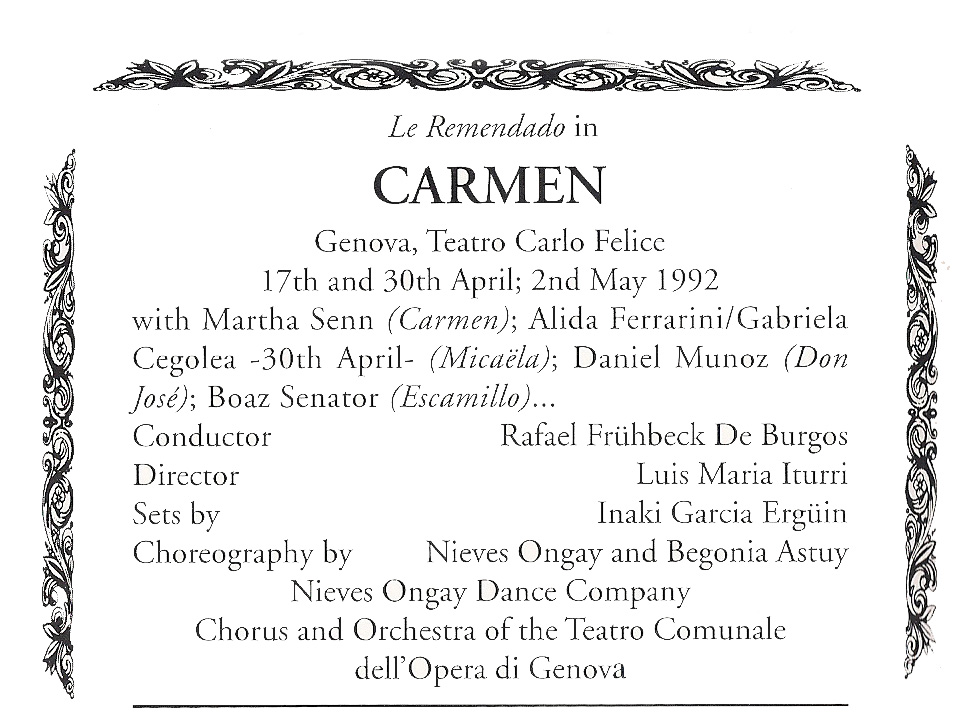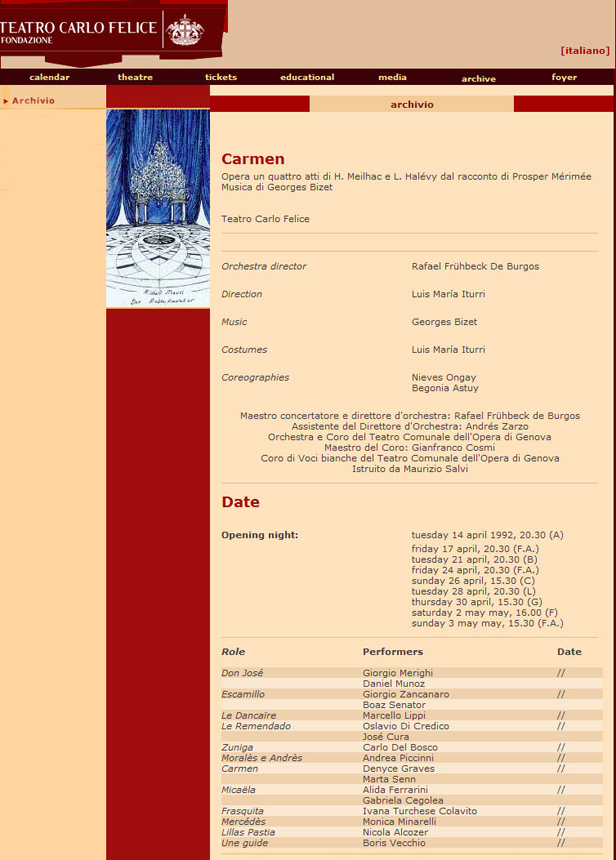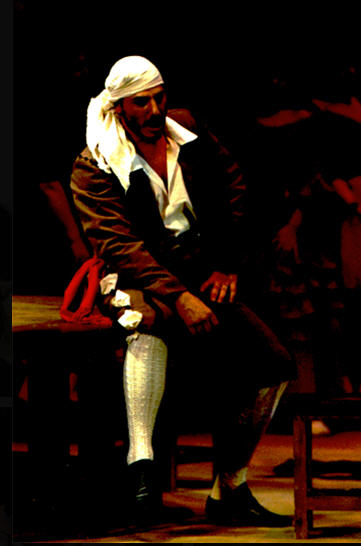


Bravo Cura
Celebrating José Cura--Singer, Conductor, Director
Operas: Carmen
Early Carmen
|
|
|
|
|
|
Carmen @ San Francisco
1996
First Don José in fully mounted production
|
|
Carmen @ Arena di Verona 1998
|
|
Carmen @ the Barbican - 1998
|
Carmen, Barbican, July 1998: “It was chiefly a vehicle for the rich talents of the Argentinian tenor José Cura as Don José and the mezzo Olga Borodina as Carmen. As an example of two singers in prime vocal condition, it was impressive but the absence of theatrical space and spirit seemed to be an impediment to the full blossoming of their fated relationship.” Telegraph, 18 July 1998, Geoffrey Norris Carmen, Barbican, July 1998: “This was Bizet confined to the concert platform. But Sunday’s Carmen carried a fire and finesse that outclassed many a staging hung with all the trappings of a Seville the composer never visited. José Cura’s brigadier [was] careful to develop his José gradually and not give away too much too early. His tenor is fast developing the baritonal qualities of Plácido Domino and Cura uses them to powerful effect, making José end as a gored bull, tormented beyond endurance. Behold the humble prototype of the Otello that Cura is about to sing around the world.” The Times, 15 July 1998, John Higgins Carmen, Barbican, July 1998: “The only unproblematic element was José Cura's José, getting the applause that befits someone on his way from the wings to center-stage as reigning Italian (-style) tenor. He didn't try to portray José as a psychopath, a notion which has to be imported into the part. Rather he remained the mother's boy with a surging libido, and insofar as there was any team to collaborate with, he was the ideal member.” The Spectator, 15 July 1998, Michael Tanner
|
Carmen @ the Bastille - 1998
|
|
Carmen @ Staatsoper in Vienna
|
|
| Ravenna 2000
Verona 2003
|
|||||||
|
|
|||||||
Last Updated: Saturday, April 27, 2019 © Copyright: Kira